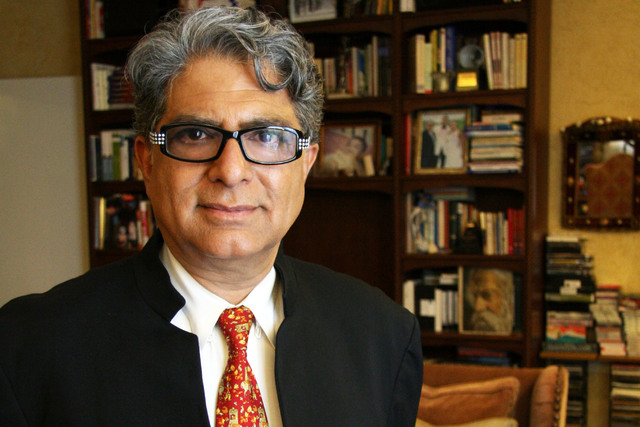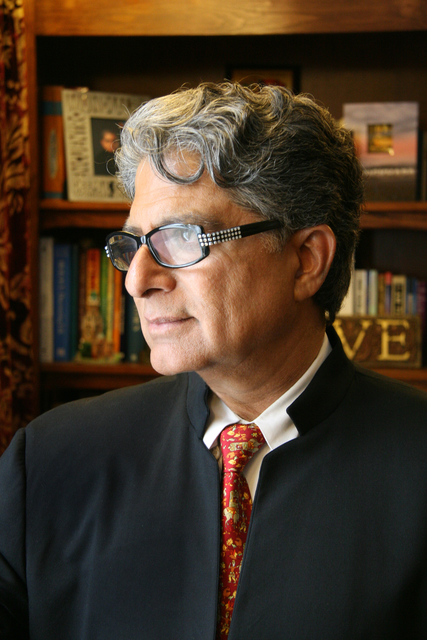Deepak Chopra’s once-radical ideas becoming mainstream medicine
When Deepak Chopra began exploring the territory of what would come to be known as integrative medicine, it wasn’t a particularly crowded place.
But, today, at least facets of therapies and treatments once thought to be “out there” increasingly are becoming accepted by some and, at the least, researched by others.
On Friday, Oct. 28, Chopra will appear at Reynolds Hall at The Smith Center for the Performing Arts in a program called “The Future of Wellbeing.” The program begins at 7:30 p.m. and tickets start at $35.
Scheduled to be discussed are questions such as is there an ultimate reality? Do we have the ability to influence the future evolution of the cosmos? And how does our understanding of consciousness enhance our capacity for total wellbeing?”
Chopra said the program will be two to three hours long and includes sharing his research about genetics, instruction in meditation and breathing exercises, and discussions about sleep and nutrition.
Chopra is the author of more than 80 books, several of which were New York Times best-sellers. His latest, with Kimberly Snyder, is “Radical Beauty: How to Transform Yourself From the Inside Out.”
He is the founder of The Chopra Foundation and co-founder of the Chopra Center for Wellbeing and an expert on integrative medicine. As an internal medicine physician, he began to explore alternative medicine — meditation and ayurvedic medicine were early interests — and found mainstream success through appearances with Oprah Winfrey.
Chopra says that many of the practices and ideas he espouses were outliers earlier in his career but that scientific research increasingly came to support them.
Medical technology over the past few decades has, for example, helped to reveal more about the body and brain and the value of such practices as meditation, he says. Once-radical ideas are now “very much part of current mainstream science.”
People intuitively understood, for example, how the mind could influence “your physical state of consciousness,” Chopra says. They knew that stress or bad news could affect them physically, he says, and were “looking for someone to validate their experiences.”
Chopra says he feels gratified at the evolution. Today “everybody talks about dopamine, serotonin, oxytocin and endorphins. So we knew there was a chemical basis to what happens in our inner life.”
Still, early on, Chopra met with a lot of resistance, he says, while, today, “every hospital worth its name has a department of integrative medicine.”
Pushback from members of the medical establishment — some of whom consider his work pseudoscience and express annoyance at what they consider to be Copra’s use of scientific terms in imprecise ways — continues.
Many are “still frozen in the ’60s or ’70s,” he says. “People are being trained a certain way, and it’s very difficult for them to get outside the usual box.”
Chopra says he senses that more Americans are interested in staying healthy.
And if he were able to have everybody adopt one simple practice that would improve their life?
“Don’t take life too seriously, because people worry about things that don’t happen,” he says. They worry about the future. They never have a good time.
“Stress is the No.1 epidemic of our time, and it’s an addictive behavior.”
Read more from John Przybys at reviewjournal.com. Contact him at jprzybys@reviewjournal.com and follow @JJPrzybys on Twitter.


















